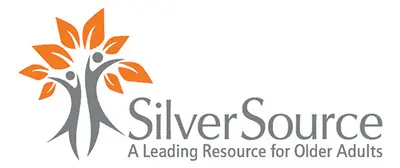Redefining Old (as in Older Adult)

{Read in 3:30 minutes}
Adjective: old; Comparative adjective: older; Superlative adjective: oldest
As we celebrate Older Americans Month, I found myself thinking about how people perceive age. I remember thinking my Dad was old — afterall, he fought in WW II — and retired early with a gold watch — but he died at age 61. Today, I certainly do not think 61 is old!
An older bottle of wine is “Vintage”; an old car, collected and prized, is a “Classic”; Great cheeses are “Aged;” an old house is a prized “Antique”; and a sturdy Oak tree might be described as “Mature” — perhaps majestic even!
But what about people?
Ageism is alive and well when we talk about “old people.” Today Older Adults are healthier; working and living longer; and creating tremendous value in our economy. Even those who have retired are often starting a second career, or volunteering and contributing their time and talent to make a difference in their communities. They tell me they are just getting started!
The number of Americans aged 65 and older is projected to double from 46 million to more than 98 million by 2060. It will be the first time in history that the number of older adults outnumber children under age 5.
Staying healthy, active and productive are admirable goals for everyone, especially older adults. However, society’s view of “old age” has not always kept up with the reality of being old in America. Many current beliefs about aging were based on information that is no longer valid given recent medical advances. The word elderly, when used to describe a woman in her 80s might result in very different responses — an 82-year-old woman might have just finished another marathon, or, she may be wheelchair bound. What exactly does “elderly” mean now?
Living longer and living well, means celebrating life: Celebrate Older Americans this Month and all year long!
- Connect with friends, family, and services that support participation.
- Create by engaging in activities that promote learning, health, and personal enrichment.
- Contribute time, talent, and life experience to benefit others.
Communities that encourage the contributions of older adults are stronger! They recognize that older adults play a key role in the vitality of our neighborhoods, networks, and lives. According to research done by the Pew Research Center: American public opinion on aging differs dramatically from the views of our global economic and political partners.
- Americans are less likely to view the growing number of older people as a major problem.
- They are more confident than Europeans that they will have an adequate standard of living in their old age.
- The U.S. is one of very few countries where a large plurality of the public believes individuals are primarily responsible for their own well-being in old age.
And yet,
- Nearly 10 percent of older adults live in poverty.
- Older women are almost twice as likely to be living in poverty as older men.
- Racially and ethnically diverse older adults are more likely to be poor than white older adults.
At SilverSource, and with your help, we are making it possible for older adults to thrive!
Do you have a question or need information? Call 203.324.6584 or email us and we will get you answers.
Kathleen Bordelon
Executive Director
Kbordelon@silversource.org
203.324.6584 x 301

